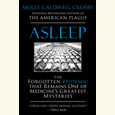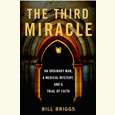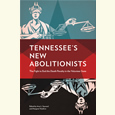February 8, 2011 When Molly Caldwell Crosby’s first book, The American Plague, appeared in 2006, critics praised the way it wove individual tales of horror and heroism into a broader scientific framework. The book recounted how the population of Memphis, where Crosby lives, was decimated by a yellow fever epidemic in 1878, and told the stories of doctors fighting to identify the disease and halt its spread. In her second book, Asleep: The Forgotten Epidemic That Remains one of Medicine’s Greatest Mysteries, published last year and now out in paper, Crosby used a similar mix of memorable characters and scientific detection to follow a chilling epidemic of sleeping sickness in the wake of World War I, a disease that left most of its victims dead or brain-damaged. Prior to her appearance at Davis-Kidd Booksellers in Memphis on February 8 at 6 p.m., she answered questions from Chapter 16 about the process of combining very human stories and scientific research.
Read moreChasing Plagues
In Asleep, Molly Caldwell Crosby examines the human side of an epidemic











